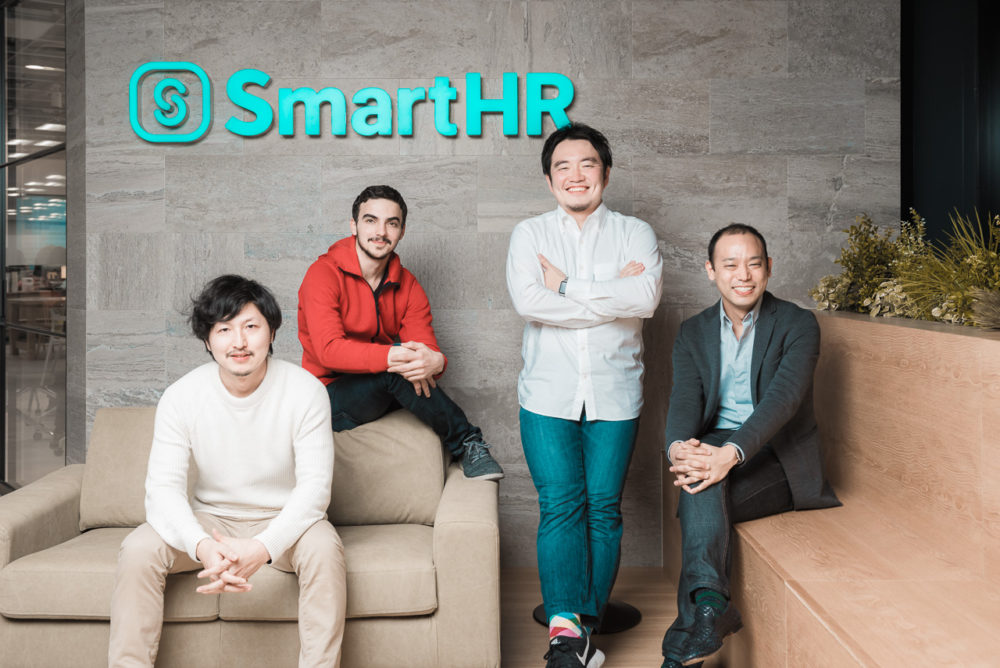Our Manifesto
Although the world’s coral reefs amount to less than 0.25% of the world’s marine environment, they are home to 25% of all marine life. Reefs are the foundation of the oceanic ecosystem, providing food and shelter to millions of marine biology. Similarly, venture capital represents only a tiny sliver of the investment world, yet over the last 40 years, venture-backed companies produced $3 trillion in annual revenues, 21% of US GDP, and 11% of the private-sector jobs.
There are no credible sources citing the impact of venture capital in Japan, but it is presumably significantly less. Only about $3 billion is invested in startups in Japan, compared to multiple tens of billions in the US and China. Which is ironic, because the world’s largest startup investor, Softbank, is based in Japan.
That said, unlike coral reefs, Japan’s venture ecosystem is growing. Startup investment has almost doubled since 2014. More people are founding and joining startups than ever before, countering the common narrative that Japan is a risk averse society.
At this inflection point for entrepreneurship in Japan, we still have a lot of work to do. We would be remiss not to maximize the impact of this pivotal moment in Japanese startup history. Founders need an environment that provides capital and other resources to thrive. Coral plays this foundational role within the marine ecosystem, and we hope to do the same within the entrepreneurial ecosystem. Tomorrow depends on the courageous few building our futures, and we want to play a small part in helping them pave the way.
Over the past three years, we’ve had the honor to invest in over 40 companies in Japan. Through these experiences, we’ve honed in on what we look for, who we are, and who we are not. As we strive to become the coral reef of the entrepreneurial ecosystem, let this be our manifesto.
We Invest In Certain Type Of People
Venture is a long term business. We often invest when founders are just getting started, and our partnerships with them could last for over a decade. Needless to say, that’s a long time. So when we make an investment, we are also thinking about whether we’d like to work with them for that duration (through both the ups and the downs). We don’t expect every investment to do well, but we hope for every investment to at least be worthwhile. We invest in many types of founders; however, they tend to share these characteristics:
They are deep thinkers. Our founders may not always be right, but they always think deeply about their businesses. They have thoughtful answers to pressing questions that dig into important details, and are continuously testing their own assumptions.
They are confident. You’ll need a healthy supply of confidence to survive entrepreneurship. Our founders have the confidence to be challenged, but the humility to listen to different perspectives in search of truth. We have strong opinions, and we are not afraid to share them. If opposing views break your confidence, we are not the partners for you.
They have integrity. We believe in transparency and having a strong moral compass. We acknowledge that this is not necessarily a recipe for success. Unfortunately there are dishonest founders that can engineer wild success. But we still believe this to be an important tenet for what we do.
They move people. Empires are not built alone. Even the smartest founders need to move hearts and minds to bring their vision to fruition. We look for charismatic and mission-oriented founders that can persuade smart people to join them and hard-nosed people to take a chance on them. Bud Tribble called this a “reality distortion field” when describing Steve Jobs.
They are swinging for homeruns, not base hits. We look for people that have a deep-rooted desire to profoundly impact their industry or society. We are not interested in incremental improvements to the status quo, and we do not shy away from hard problems. Transformative companies are not built by people that lack ambition. Our goal is to find the audacious few and give them the resources to bring about positive change on a grand scale.
Founders Are Important, But So Are Markets
We are not thematic investors. In other words, we don’t seek to invest in particular themes. Blockchain, or AI, or Fintech, or any of the other buzzwords are areas that we may invest but do not actively seek to invest. And there’s a reason for this: if we focus on a particular area, and the dream team doesn’t appear, then our predictions are meaningless.
But that doesn’t mean that we don’t look at the market, nor that we only look at the founders when we make investment decisions. Both are important.
The best analogy for this perspective is from Mike Maples at Floodgate. He uses a metaphor about surfers and waves. The founder is the surfer, and the wave is the market –or more broadly, the idea. A topnotch surfer can ride just about any wave, big or small. But without a big wave, the surf session is destined to be unremarkable. So the wave that the surfer picks is important. Just as there are only a few waves actually worth surfing, there are only a few ideas worth the time, stress, and career risk of a startup.
While the size of the wave is important, we are also concerned with other features. Are there already a lot of surfers out there? The best waves are wide open. Can powerful incumbents ride the same wave? If not, we want to know why that is the case. The reason that we have invested in so many SaaS companies in Japan is because there are hardly any surfers on those waves – not because we are primarily focused on SaaS.
Ultimately the surfer matters the most. A surfer can get back on the board and go surf another wave, or at least make do with the wave he or she is riding. But when an amazing surfer meets and amazing wave, that’s when the magic happens.

Most Investors Are Either “Hands-On” or Hands-Off.” We’re
“Hands-IF.”
Founders naturally want to know what to expect when accepting money from an investor. There are many different shades and colors in this industry for entrepreneurs to choose. But one commonly referenced dichotomy is whether an investor is “hands-on” or “hands-off.”
A hands-on investor is someone that likes to get deeply involved in the business. They pride themselves on being just another member on the executive team, and want to roll up their sleeves and work next you. This can be a huge plus, especially for founders that want to be guided. The downside is that these investors tend to have overhead costs. They may want to meet frequently and receive updates every week on how things are going. They can be particularly vocal about how they feel because they are working so closely with you. For founders that prefer to run their own business, these investors can come off as overbearing –even if they have good intentions.
As you’ve probably deduced, a hands-off investor is the opposite. They write you a check, wish you luck, and then you hardly hear from them. Either they are too busy to monitor you closely, or they just want to let you run your business. Either way, that is their style. It is an approach that can be perfect for an entrepreneur that just wants an investor to wire them money and leave them alone.
So, which one are we? The short answer is that we are somewhere in the middle. We are “hands-if” investors. As in, “call us IF you need us.” We get deeply involved in areas where founders express that they need help. Instead of routine meetings, we’re frequently in touch over chat, trying to resolve issues in real-time. While one company might need help fundraising, another might need help hiring, and another might need help with their stock option pool, and another might need help polishing their pitch, and another might need introductions to clients.
The one thing we won’t do is babysit our entrepreneurs. We invest in founders that we believe in, not companies that we’d like to run.
There are some VCs that originate business ideas and then search for founders to start them. Some also search for technologists or scientists at universities and then look for professional CEOs to partner with them. While we acknowledge that these are some ways to build businesses and generate returns, that is not our approach. We believe that the greatest companies are built by founders, not investors. No matter where you look – whether it be Amazon, Google, or Facebook in the US, or Softbank, ZOZO, or Mercari in Japan – the most important companies have almost always been led by founders.

We May Not Offer the Best Price, But We Strive To Offer The Best Value
One uncomfortable truth is that we are unlikely to offer your company the highest valuation. We are transparent about this, even if it is to our disadvantage.
As funding options continue to proliferate in Japan, money is increasingly becoming a commodity. There are more corporates, VCs, governments, banks, and angels in the market than ever before. If we were simply a provider of capital, we would expect to see our entry valuations trend upward. However, conversely, our valuations have in fact gone down over the years.
The reason is likely due to our approach. We think of venture capital as a service business where entrepreneurs are our clients. Money is one part of what we do, but we also provide the following functions within our platform to help our founders succeed:
Fundraising. For fundraising, we have a systematic approach to get founders to their next rounds. We maintain a database of both domestic and international investors for our founders to tap. So when it is time to raise, we know who to introduce and how to pitch them. As a result, of the founders that we back that have had a year to mature, almost all raise their next rounds.
Interesting in working at a startup? Apply here (page in Japanese)
Recruiting. As soon as we invest, the next pain point for founders is hiring. To alleviate this, we have built a recruiting function in-house. We’ve built a talent database for our founders to hire from, and our full-time talent manager runs regular career fairs and recruiting events that attract anywhere from 30 – 250 people at a time.
Public Relations. Getting press coverage can be an important element for a startup to hire, acquire customers, and raise money. To help with public relations, we maintain a close network of journalists (both domestically and internationally), as well as a PR consultant on call to make sure that our startups get the most reach possible. This is why almost all of our startups get coverage in the major publications.
Community. Our investment also comes with a founder network. We run over 40 events a year to foster relationships between founders. Founders may be in different markets but they face similar challenges. By building both online and offline connections, we’ve built a culture among founders to help each other succeed.
When you are taking an investment from us, the money comes with all of the above. So while price may not be our differentiator, you will be hard-pressed to find a founder that regrets taking our investment. And that’s not just an assumption, it’s something we measure with quarterly customer satisfaction surveys to our founders. When asked to rate how strongly they would recommend us to another entrepreneur, founders consistently score us above 90%.
Founders are our customers, and we have a relentless focus on customer service. So while we may not offer you the highest price, we work hard to offer you the most value for your equity. As Warren Buffett once said, “Price is what you pay. Value is what you get.”
We Think For Ourselves
Herd mentality is hard to fend off in venture, both from a fundraising and an investing perspective.
When fundraising, LPs feel comfort when you have an investment scope that is aligned with their latest mandate. This is especially the case in Japan, where most of the money for venture capital comes from corporates. Corporate investor appetite tends to shift with the latest trends, looking for opportunities that will help them check a box on a list handed down from the top. That is largely why we see VCs raising funds focused on “Fintech,” or “AI.” The latest words printed on mainstream business magazines are indicative of what will raise a fund these days. But these funds are raised with the LPs in mind, not the entrepreneurs.
The pressure to conform also appears when investing. Most investors, including us at times, feel better when others have validated an investment theme. Having another set of eyes (that you trust) look at a category or company and also think it is worth a bet helps you build conviction. But this investors-looking-to-other-investors phenomenon can create a snowball effect where investors essentially all chase the same companies.
This influx of capital not only drives up prices, but also competition – two things that as investors we would be wise to avoid. As early stage investors, it is even more imperative to invest before everyone agrees that it is a good investment. That is why we strive to think independently every time we write a check. This includes our follow-on checks. We make the decision on whether to continue to invest in our founders before they go out to raise their next round. This forces us to think independently without the biases of other investors.
Japan: The Ultimate Contrarian Bet?
Japan is often an afterthought when it comes to startup ecosystems. Why invest in Japan when we can invest in China, India, and Southeast Asia? Those are not only the growing economies, but also the rising startup markets in Asia. If you talk to most investors outside Japan, that is what they will tell you.
It is hard to argue with them. Despite being the 3rd largest economy in the world, startup investment is sparse. However, what is particularly troubling is the antithetical local perceptions. While most people outside Japan laugh at how little money goes into Japanese startups, most people inside worry that there is too much money.
The reality is more nuanced. The outsiders don’t realize how much the market has grown, while the insiders don’t realize how infinitesimal it still is compared to the size of the economy.
The problem in Japan is the lack of confidence and ambition – two ingredients that the US and China have in ample supply. While that euphoria can lead to many catastrophes, transformational companies like Uber, Airbnb, and Tencent emerge among the ashes. So the outcome is net positive. How many hundreds of billions of dollars of value was created in exchange for the tens of billions invested? All you need are a few outlier outcomes to make up for the failures. That is the type of thinking that is missing in Japan.
Fortunately, there is a silver lining. The perception of entrepreneurship is changing, and the caliber of founders is on the rise. The large, stable, and prestigious corporates are losing their gravitational pull for the smartest talent, who are increasingly choosing to found or join a startup. And these founders are chasing enormous markets, such as healthcare, law, insurance, and logistics; areas that have been underpenetrated by technology, and largely dominated by slow moving corporates. These incumbents have enjoyed a long reign without formidable challengers. But a coup d’état is on the horizon.
With more talent and more capital in the market, we’ve entered an important cambrian moment. The question is, will Japan sufficiently fund and support the rebellious few changing the country’s trajectory? Or will we shortchange our future by funding incremental progress and quick flips? We’re betting on the former.
We strive to be the coral foundation that supports smart people chasing ambitious ideas, for these captains of industry are the people that truly change the world.


